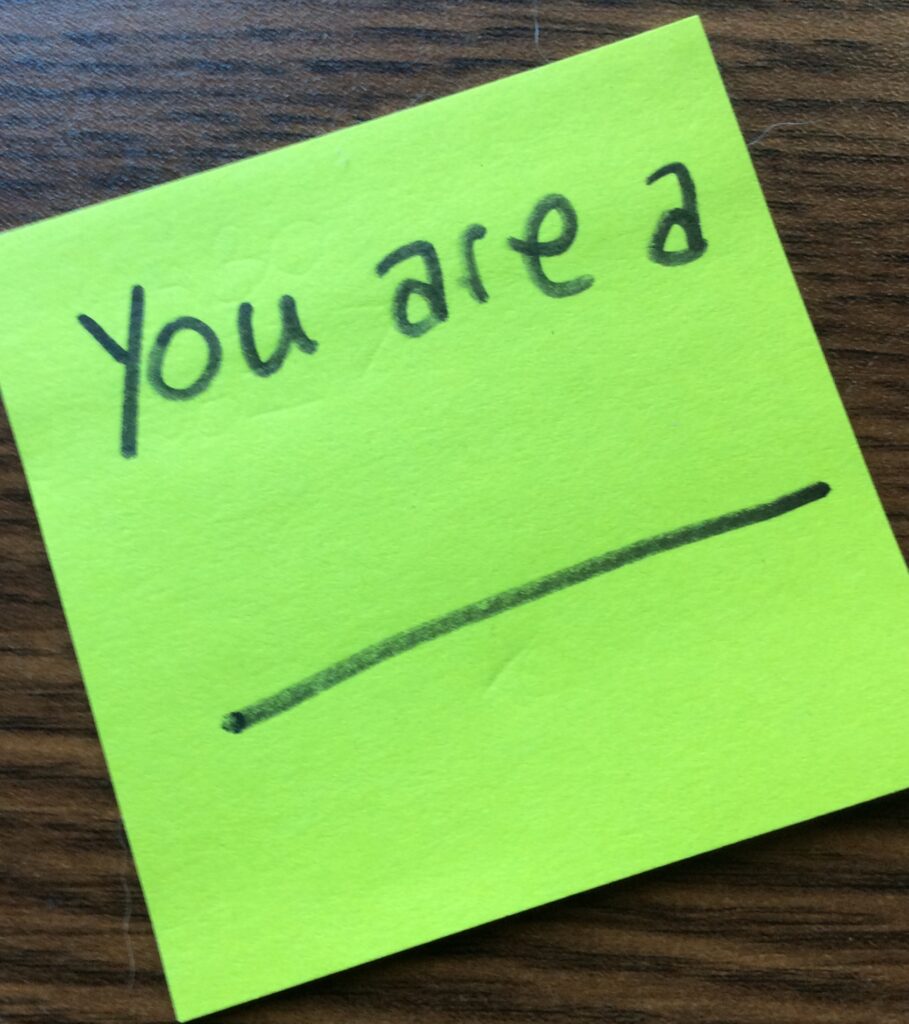
Children learn very quickly to label everything in their world. It’s the human way to categorize and make sense of what is good and bad, tasty and yucky, friendly or frightening. You get the idea. Parents reward and encourage accurate labeling.
Spend any time on a playground and you will likely hear some very derogatory, demeaning, degrading, and downright mean labels being thrown around in the form of name-calling. You doodie-head grows-up to be you idiot or worse as we adults have years of experience perfecting name-calling, even if it just stays in our internal dialogue.
Perhaps we adults can benefit from accepting our natural and masterful label making tendencies and better understand what motivates us to do this. It is not a character defect. Labeling is most likely the result of our normal values-system at work.
Professor Steven Reiss, Ph.D., the father of The Science of Motivation®, once said:
We are an intolerant species because we are motivated to assert our own values. We have a tendency to think that something must be wrong with people whose values are significantly different from our own. We cannot comprehend how anybody can freely choose to pursue goals we intrinsically devalue because all of our experiences with those goals have been unpleasant.
Advocates of tolerance are almost always talking about political or racial tolerance. Except for a few personality experts and motivation analysts, there are almost no advocates for tolerating diverse personalities.
When one has a natural intense value for an extreme amount of order, for example, they think orderly people like them are normal, tidy, precise, detail-oriented, perfectionists. The orderly might naturally label someone with a very low need for order as messy, unorganized, tardy, a slob, and inconsiderate of how they treat shared space with the orderly person. The once-popular “Odd Couple,” play and TV series optimizes these values differences between Felix (orderly) and Oscar (unstructured).
The problem with our values-based labeling is that it is usually not only hurtful, but it is inaccurately based on misbeliefs and misunderstandings of why someone else behaves as they do as determined by one’s own worldview. Felix yells at Oscar for leaving his dirty dishes in the sink and for just assuming Felix will clean up after him. Oscar becomes offended that Felix is so up-tight and a clean freak that he can’t let Oscar live the way he feels most comfortable. They are both arguing and yelling in-defense of their strongly held values and their equally strongly held labeling. Here’s the takeaway…the argument is almost never really about the dirty dishes. The argument is about the value judgment and ascribed label that the dirty dishes generate.
As an executive coach, I work with my clients using the Reiss Motivation Profile® to help them accurately label and understand their individual values-system. Once we understand what matters most to us, we can better anticipate where we will naturally misjudge and mislabel others. Tolerance, acceptance, inclusion, and mutual respect can result from one’s self-awareness of one’s unique values-system and natural mislabeling tendencies. When it comes to interpersonal relationships and our values as Professor Reiss used to say, “Opposites do not attract. They are highly motivated to argue in defense of their strongest values.”
Are their relationships you find very difficult to maintain or people you find it incredibly difficult to work with? Do you have a ready supply of labels to tag people with? What could become possible if you understand yourself and others more accurately? Perhaps it will result in more accurate and positive labels such as friends and teammates.
Relationships begin with your contribution to them. Learn what motivates your labels by getting your Reiss Motivation Profile®. Then we can create your ABC (Attitudes, Behaviors, and Competencies) Growth Plan together and help you to be your best at doing your good!
Visits: 20